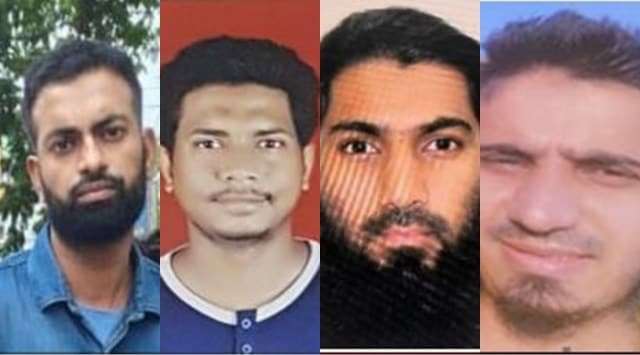In a significant breakthrough for national security, the Maharashtra Anti-Terrorism Squad (ATS) on Friday apprehended two terror suspects in Mumbai with direct ties to the 2023 Pune terror conspiracy. The arrests mark a critical development in the investigation into an alleged Islamic State (ISIS) module operating within India.
According to senior ATS officials, the duo—identified as Arshad Aftab and Danish Moin—were detained after days of intensive surveillance. Both individuals were allegedly in contact with operatives already in custody in connection with the 2023 Pune case, which involved plans to carry out large-scale terror attacks across Maharashtra. These developments have renewed concerns about urban terrorism and sleeper cells within India’s metropolitan areas.
Authorities revealed that Aftab and Moin were radicalized online and were in possession of extremist literature and digital evidence indicating plans to carry out terror-related activities. Initial forensic analysis of their electronic devices uncovered communication with foreign handlers suspected to be affiliated with ISIS-K, the Khorasan Province offshoot of the Islamic State group.
“These arrests are crucial in dismantling a wider terror network. We believe this module was in the preparatory stages of launching coordinated attacks,” said an ATS official, speaking on condition of anonymity. “Our teams are now pursuing additional leads in Mumbai and adjoining regions.”
The arrests come less than two years after the Pune ATS dismantled a sleeper cell in the Kondhwa area in May 2023, recovering bomb-making material and arresting three individuals. That case raised national alarm over the resurgence of ISIS-inspired plots in India after a relative lull. Investigations later revealed that the group had received ideological training and technical support via the dark web and encrypted messaging platforms.
The latest arrests have prompted heightened security measures across Mumbai and Pune, with intelligence agencies intensifying monitoring of suspected radical elements. Security experts have underscored the need for robust counterterrorism frameworks, particularly in urban hubs where anonymous populations and access to high-tech infrastructure make detection challenging.
Cybersecurity analyst Rakesh Sinha noted, “The modern terror landscape relies heavily on digital communication and anonymous transactions. Policing has to evolve to proactively identify and neutralize such threats before they manifest in physical violence.”
The ATS is now working closely with the National Investigation Agency (NIA) to piece together the broader network. Sources indicate that international cooperation, particularly with intelligence agencies in the Middle East and Southeast Asia, has been pivotal in tracing the suspects’ online footprints and funding sources.
In light of these developments, Home Minister Amit Shah issued a statement lauding the ATS and calling for increased vigilance. “We remain committed to neutralizing every threat to the nation. Acts of terror will be met with unwavering resolve.”
As the investigation progresses, citizens have been urged to report suspicious activities and avoid spreading misinformation on social media platforms. The arrests serve as a stark reminder that while major attacks may be thwarted, the ideology driving them remains persistent and adaptive.



